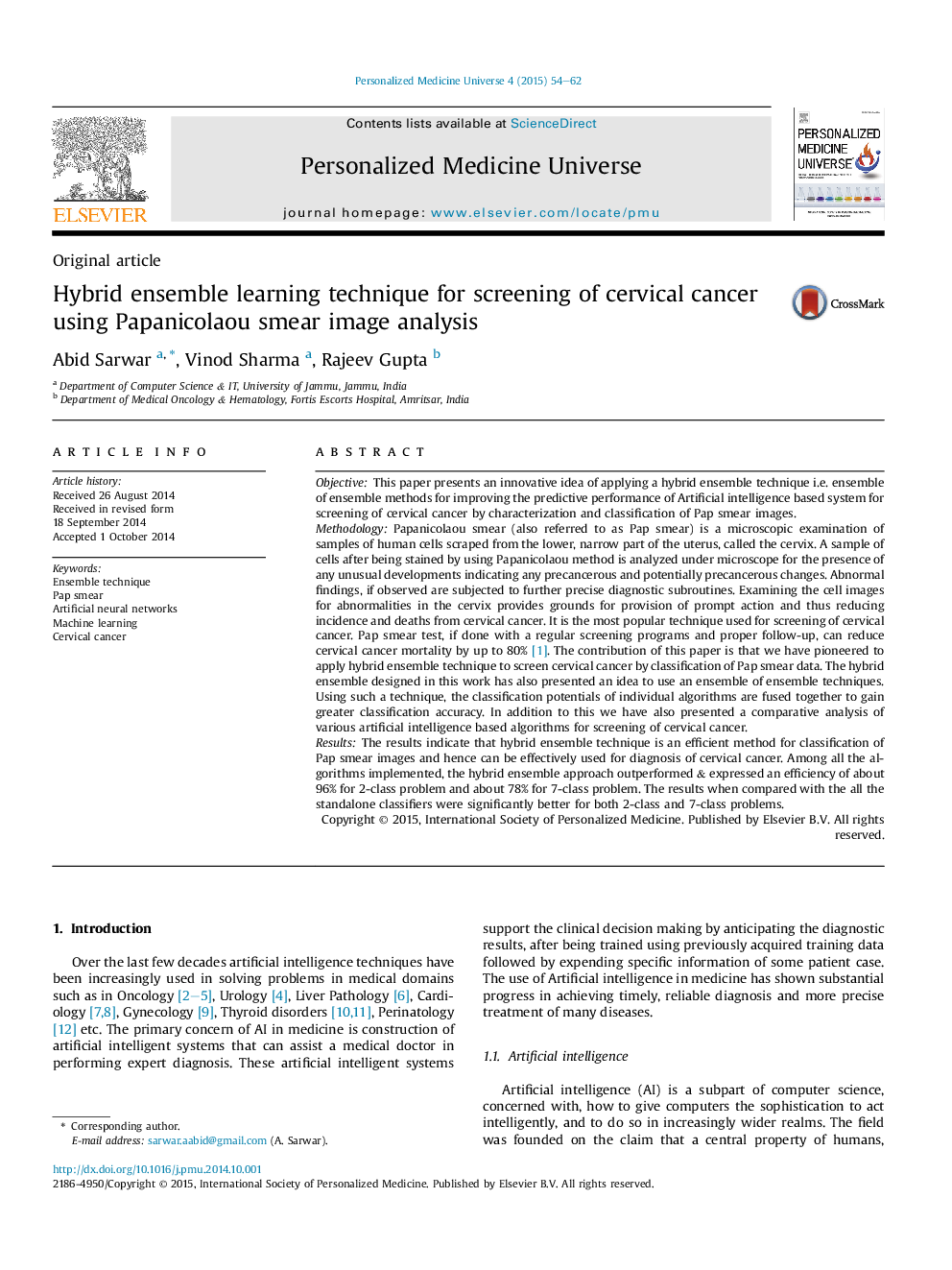| Article ID | Journal | Published Year | Pages | File Type |
|---|---|---|---|---|
| 3382622 | Personalized Medicine Universe | 2015 | 9 Pages |
ObjectiveThis paper presents an innovative idea of applying a hybrid ensemble technique i.e. ensemble of ensemble methods for improving the predictive performance of Artificial intelligence based system for screening of cervical cancer by characterization and classification of Pap smear images.MethodologyPapanicolaou smear (also referred to as Pap smear) is a microscopic examination of samples of human cells scraped from the lower, narrow part of the uterus, called the cervix. A sample of cells after being stained by using Papanicolaou method is analyzed under microscope for the presence of any unusual developments indicating any precancerous and potentially precancerous changes. Abnormal findings, if observed are subjected to further precise diagnostic subroutines. Examining the cell images for abnormalities in the cervix provides grounds for provision of prompt action and thus reducing incidence and deaths from cervical cancer. It is the most popular technique used for screening of cervical cancer. Pap smear test, if done with a regular screening programs and proper follow-up, can reduce cervical cancer mortality by up to 80% [1]. The contribution of this paper is that we have pioneered to apply hybrid ensemble technique to screen cervical cancer by classification of Pap smear data. The hybrid ensemble designed in this work has also presented an idea to use an ensemble of ensemble techniques. Using such a technique, the classification potentials of individual algorithms are fused together to gain greater classification accuracy. In addition to this we have also presented a comparative analysis of various artificial intelligence based algorithms for screening of cervical cancer.ResultsThe results indicate that hybrid ensemble technique is an efficient method for classification of Pap smear images and hence can be effectively used for diagnosis of cervical cancer. Among all the algorithms implemented, the hybrid ensemble approach outperformed & expressed an efficiency of about 96% for 2-class problem and about 78% for 7-class problem. The results when compared with the all the standalone classifiers were significantly better for both 2-class and 7-class problems.
